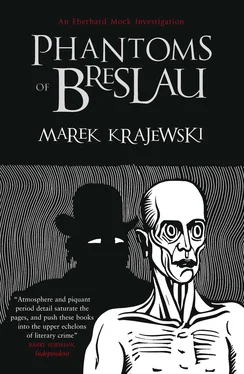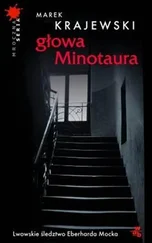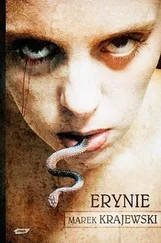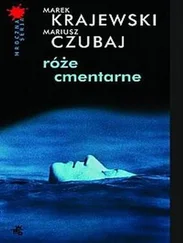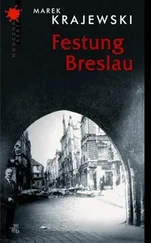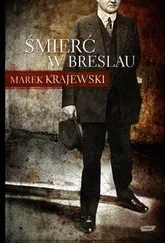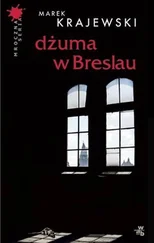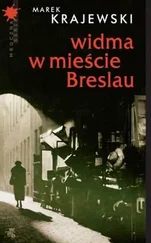Marek Krajewski - Phantoms of Breslau
Здесь есть возможность читать онлайн «Marek Krajewski - Phantoms of Breslau» весь текст электронной книги совершенно бесплатно (целиком полную версию без сокращений). В некоторых случаях можно слушать аудио, скачать через торрент в формате fb2 и присутствует краткое содержание. Жанр: Полицейский детектив, на английском языке. Описание произведения, (предисловие) а так же отзывы посетителей доступны на портале библиотеки ЛибКат.
- Название:Phantoms of Breslau
- Автор:
- Жанр:
- Год:неизвестен
- ISBN:нет данных
- Рейтинг книги:3 / 5. Голосов: 1
-
Избранное:Добавить в избранное
- Отзывы:
-
Ваша оценка:
- 60
- 1
- 2
- 3
- 4
- 5
Phantoms of Breslau: краткое содержание, описание и аннотация
Предлагаем к чтению аннотацию, описание, краткое содержание или предисловие (зависит от того, что написал сам автор книги «Phantoms of Breslau»). Если вы не нашли необходимую информацию о книге — напишите в комментариях, мы постараемся отыскать её.
Phantoms of Breslau — читать онлайн бесплатно полную книгу (весь текст) целиком
Ниже представлен текст книги, разбитый по страницам. Система сохранения места последней прочитанной страницы, позволяет с удобством читать онлайн бесплатно книгу «Phantoms of Breslau», без необходимости каждый раз заново искать на чём Вы остановились. Поставьте закладку, и сможете в любой момент перейти на страницу, на которой закончили чтение.
Интервал:
Закладка:
“See, Mrs Zesche? That’s one of her suitors. Just look what drink’s done to his mug?”
The crash of a forced door resounded through the tenement, followed by the rustle of crumbling plaster and the shrill squealing of the dog. The dark-haired man ran to the windowsill and took the child in his arms. Charlotte looked at him in fright and tried to push him away with straight arms. Siegfried Franzkowiak, who was blessed with good hearing, detected sighs of relief in the child’s crying. He also heard Mrs Zesche’s commentary:
“See, my dear Miss Wilck, how the child has calmed down? That must be her father. See how alike they are? Tears are even running down that mug of his.”
“Her father died in the war, you idiot!” Franzkowiak yelled.
BRESLAU, THAT SAME SEPTEMBER 4TH, 1919
FOUR O’CLOCK IN THE AFTERNOON
Mock woke up in detention cell number 3 at the Police Praesidium on Schuhbrucke 49. He felt heavy and tired. He closed his eyes and tried to remember his dream, and succeeded without difficulty. The dream was hazy, unreal and melancholic. A meadow and a forest, grass criss-crossed by streams of water. There was a person there, too: beautiful, red-headed, with gentle eyes and dry, soft hands. Mock reached for the jug of unsweetened mint tea which the guard, Achim Buhrack, had prepared for him. He swallowed and established with some relief that he did not need the beverage after all. His hangover had disappeared — and here Mock felt blood rush to his head — along with that morning’s events. He remembered the drop of blood which had dripped from Wohsedt’s head onto his cheek as he squatted by the pond in South Park; he recalled Commissioner Muhlhaus’ words: “Now do you understand why I’m taking you off the case? Who else did you question, Mock? Who have you poisoned? Who else is going to die in this city?” He remembered all too well the little girl’s despair as she first pushed him away, then snuggled into him; he remembered questioning the inhabitants of the dark inner yards on Reuscherstrasse: “Nobody knows anything, she often went out at night, but always came home — yesterday she came home at about four o’clock.” He remembered Smolorz forcefully tearing the child away from him and saying: “We’ll catch him. We’ll catch him with or without Muhlhaus. It’s too early now; we’ll do it this afternoon.” The last scenes he replayed were distorted and unclear — Smolorz pushing him into the car, saying: “You haven’t slept all night. Get some sleep, the carpenter’ll take care of the little one.” Then the jug of mint tea and cell number three.
Mock got up from the bunk and performed several squats. He went to the cell door and knocked several times. The old guard, Achim Buhrack, opened up and said in his strong Silesian accent:
“It’s the first time I’ve seen a police officer sleeping in cell number three when he’s not drunk.”
“Sometimes some people don’t have anywhere to go to get enough sleep,” Mock said as he ran his hand over the rough stubble on his cheeks. “I’ve one more favour to ask of you, Buhrack … Is there a razor around here anywhere …”
BRESLAU, THAT SAME SEPTEMBER 4TH, 1919
SIX O’CLOCK IN THE EVENING
As yet there were very few customers in the Hungarian King. Only one alcove had been occupied, and its heavy curtain was drawn. A few ladies, judging by the high pitch of their voices, could not make themselves comfortable. The curtain rippled and the rail separating the alcove from the rest of the restaurant kept ringing as if someone were striking it with a rod.
“They can’t find anywhere to put their umbrellas,” whispered Adolf Manzke, the young waiter who had helped Mock transport an unconscious Ruhtgard to the car the previous night. Manzke was far from pleased that Mock had not ordered any alcohol that evening, but the first twenty-mark note with which this regular customer paid for his Wiener Schnitzel without asking for any change dispersed any concerns he may have had about his tip.
“What is your name, young man?” Mock asked, and on hearing his answer continued: “Explain something to me, Manzke. I asked for a fiacre yesterday and you called for the automobile which usually ferries drunken clients home. Isn’t that so?”
“It is,” Manzke said, and when he saw Mock fold another enormous twenty-mark note in four, he leaned in even closer.
“The fiacre’s horses soil the pavement outside your establishment, isn’t that what you said?”
“It is,” — the waiter’s neck was getting stiff — “Mr … Mr … I don’t know your name — what should I call you?”
“Call me Periplectomenus,” Mock said, remembering the sybarite from Plautus’ comedy Miles Gloriosus . “So how would you explain the behaviour of your colleague when he was attending to the demands of one of the ladies? She called for a carter and he promised to fulfil her wish immediately. Explain that to me, Manzke.”
“Maybe he needed to fetch the carter from far away and the lady was appropriately generous.” The waiter kept glancing at the folded note Mock was weaving between his fingers. “Anyway, you should ask him …”
“Indeed, Manzke, you’re right.” Mock slipped the note into the waiter’s waistcoat pocket. “But I don’t know which waiter it was … Will you help me find him?”
Manzke nodded stiffly and moved away between the tables. The musicians bowed to the audience and blew on their trumpets. Several dance-hostesses — including a dark-haired woman who smiled broadly at Mock — began to sway to the music without leaving their tables. Three elderly men who, like Mock, had in the meantime taken their seats on the second tier overlooking the dance floor eyed the girls through coils of smoke. Eventually one of them made up his mind and approached the dark-haired hostess. She stood up slowly, and did not spare Mock a look of disappointment.
The Criminal Assistant settled down to his goose-liver pate. He was interrupted in his consumption of this delicate cold meat by Manzke the waiter, who placed a napkin on the table and quickly disappeared. Beneath the napkin lay a clean strip of cash register ribbon on which was written: “Kiss my arse.” Mock rubbed his eyes and lit a cigarette. He looked at the scrap of paper once more and heard a ringing in his ears. He stubbed out the cigarette, stood up and made his way through the tables. He entered the bar and, guided by his instinct for alcohol, soon found the serving counter. There stood Manzke, collecting slim, frothing glasses of beer from the barman. When he saw Mock he made towards the flapping kitchen door, but Mock was faster. The waiter did not manage to open the door of his own accord, but did so involuntarily when the weight of Mock’s body shoved against his. He tumbled into the kitchen, but there, instead of running from the enraged man, he stood behind a table at which a bald waiter sat in his shirtsleeves counting his tips. Manzke glanced meaningfully at his colleague, who was surprised by the commotion, and apologized to Mock for not bringing him his bottle of gin in good time. Nobody said a word. The Criminal Assistant left the kitchen lobby and made towards the toilets. In the cubicle he tore off a scrap of toilet paper and wrote: “The bald, fat waiter.” He went out, paid his bill and discreetly gave Manzke a considerable tip. He also handed him the piece of toilet paper and with his eyes indicated Smolorz, who was sitting in the bar. Manzke drifted over to Smolorz, and Mock towards the exit. “That Manzke ought to be employed by the police,” he thought. “As an informer, for the time being; I liked the way he pointed out that waiter to me.”
BRESLAU, THAT SAME SEPTEMBER 4TH, 1919
Читать дальшеИнтервал:
Закладка:
Похожие книги на «Phantoms of Breslau»
Представляем Вашему вниманию похожие книги на «Phantoms of Breslau» списком для выбора. Мы отобрали схожую по названию и смыслу литературу в надежде предоставить читателям больше вариантов отыскать новые, интересные, ещё непрочитанные произведения.
Обсуждение, отзывы о книге «Phantoms of Breslau» и просто собственные мнения читателей. Оставьте ваши комментарии, напишите, что Вы думаете о произведении, его смысле или главных героях. Укажите что конкретно понравилось, а что нет, и почему Вы так считаете.
